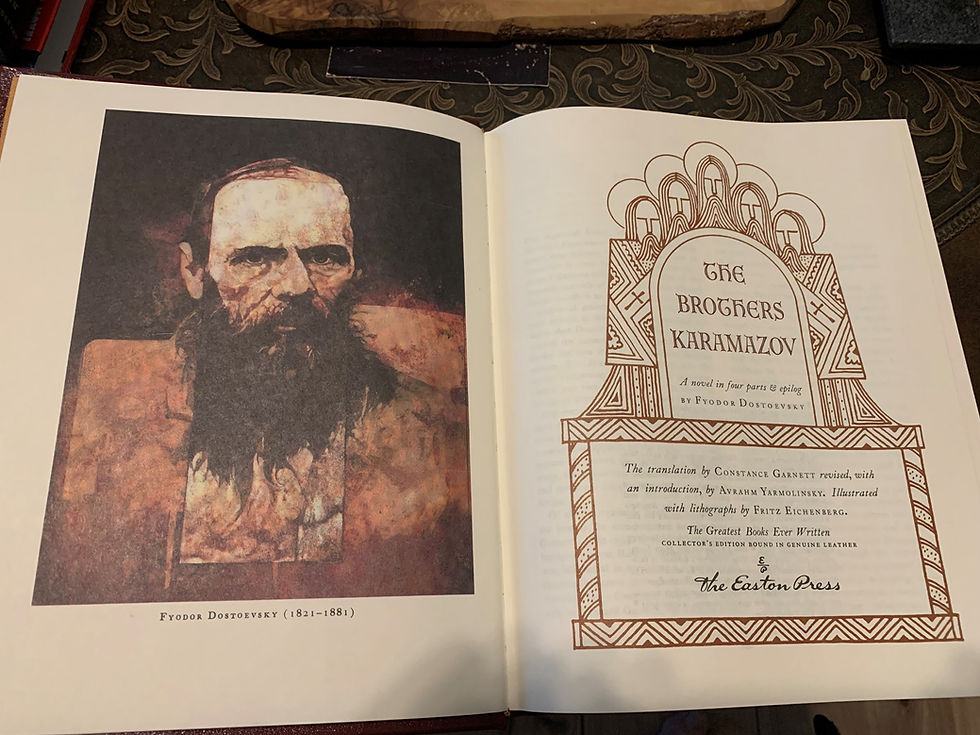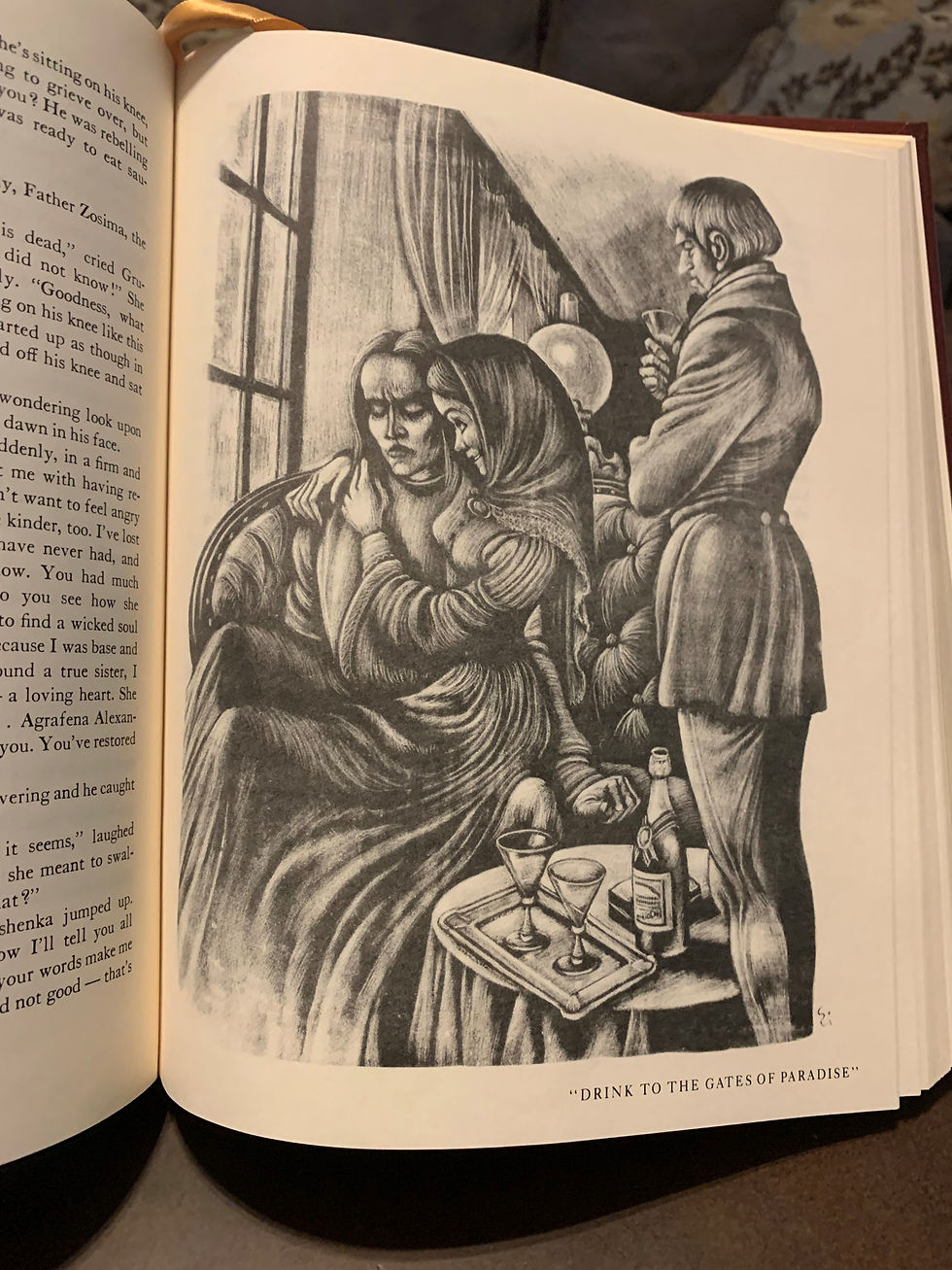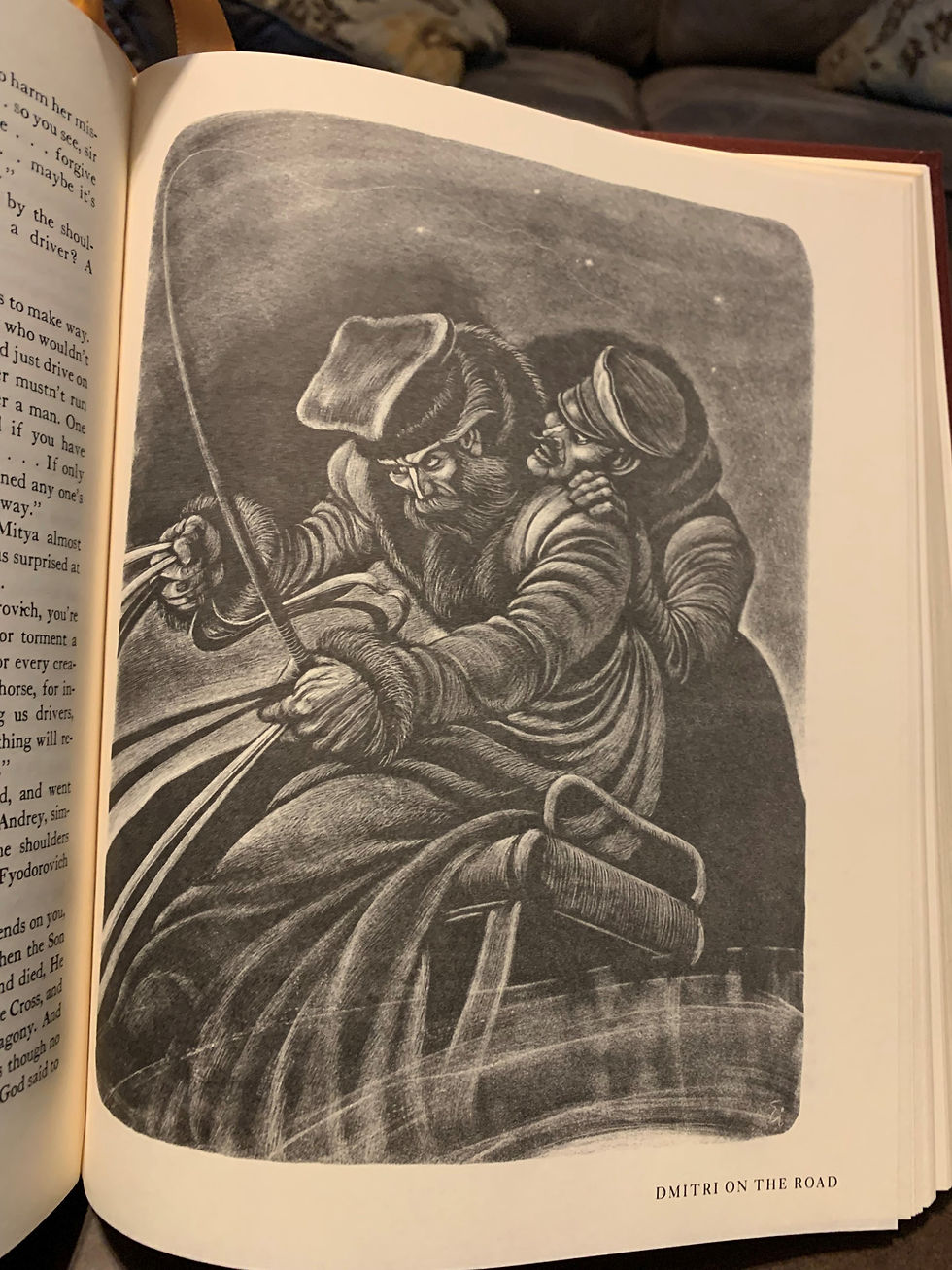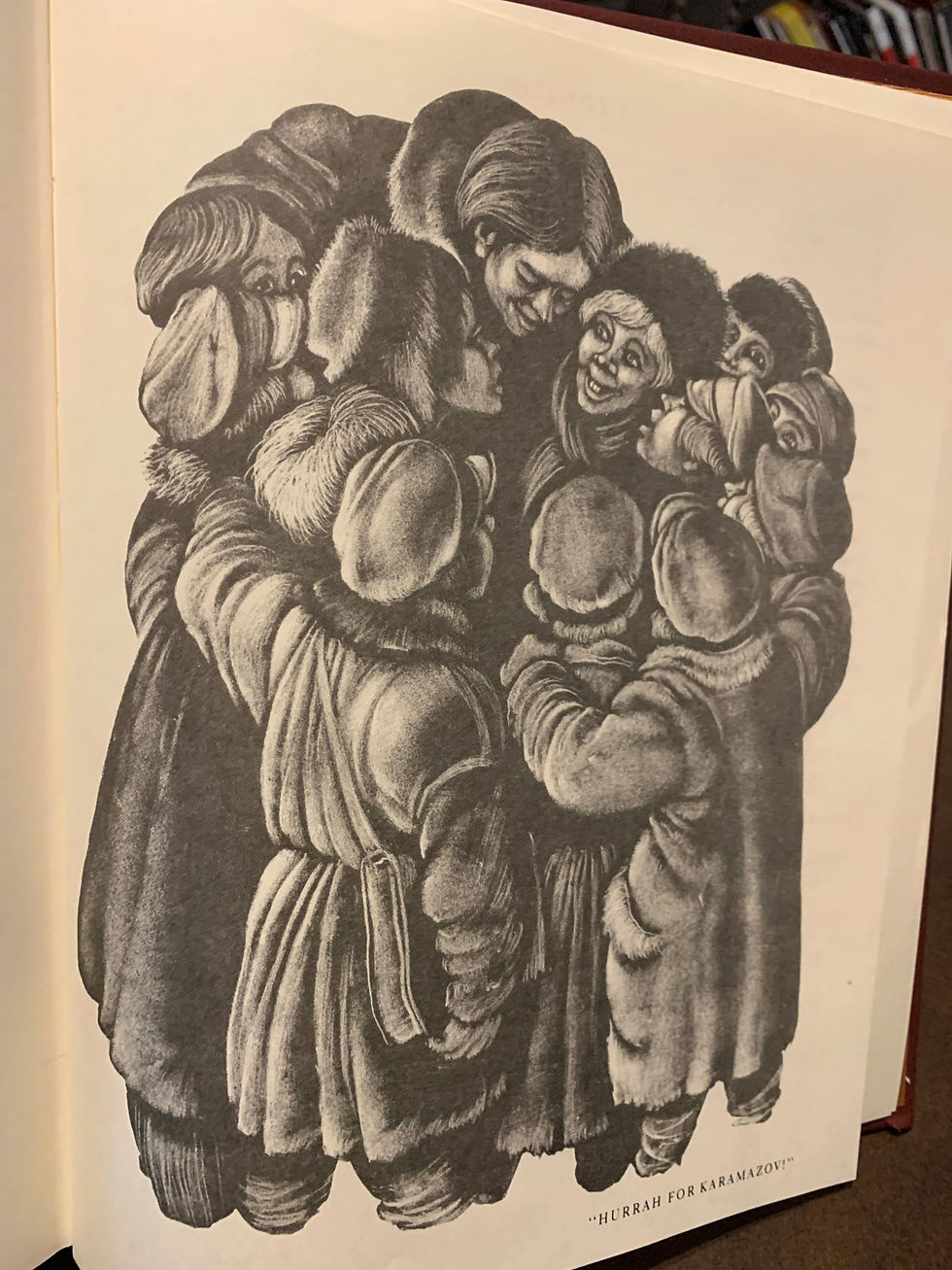The Brothers Karamazov
- Brian Johnson

- May 27, 2022
- 3 min read
Updated: Nov 16, 2024
Earlier this week I finished rereading "The Brothers Karamazov," by Fyodor Dostoyevsky. First, let me say this is among my all-time favorite books - top five I would say. I've read it four times now and it still resonates with me. I read a new copy I had received from Easton Press as part of the greatest 100 books subscription. It had been around fifteen years or so since I last read it, so a lot of the details seemed new to me. I had slept since then.


Secondly, let me say Alyosha, one of the three (or four?) brothers, is more of a hero to me than any other fictional character in any book. I adore him and understand the author did as well. He is patient and kind....wise and faithful. He is sincere enough to have doubts but becomes passionately devout to Jesus Christ and His teachings. It's always a treat to read scenes that have him in them.

Thirdly, one of my favorite chapters of any book I've ever read is present in this book. That, too, was a treat to read again. I think it is strong enough to stand on its own. It is the fourth chapter, Cana of Galilee, of Alyosha's book, Book IV, . It's beautiful and stirring. There's only a handful of short works or chapters of works that have moved me as much. One in Robert Heinlein's "The Cat Who Walks Through Walls," a Harlan Ellison short story, the final chapters in "Journey to the End of the Night"....others too but will discuss those in their own places.
The story of "Brother Karamazov," is one of the struggles of humankind, of philosophy, and of psychology. Typical of Dostoyevsky's greater works, he brings forth lots of detail and color to the narrative and a lot of depth to the characters. He has almost a prescient voice in that he seems to understand people at a very fundamental level....what drives them, what they feel, and what they think. And there's quite an array of different characters in this book, too, with a broad range of experiences and situations, which makes his prescience all the more impressive. I don't know how Fyodor Dostoyevsky wrote as well as he did....I'm glad his work has survived so that I and others can enjoy reading it, though.
As one example, Dostoyevsky writes, through Alyosha, "Oh, no; there are people of deep feeling who have somehow been crushed. Buffoonery in them is a form of resentful irony against those to whom they daren't speak the truth, through having been for years humiliated and intimidated by them."
As yet another example, later, Dostoyevsky writes, this time through Ivan, "Though I may not believe in the order of the universe, yet the sticky little leaves as they open in spring are precious to me. The blue sky is precious to me, sometimes a person is dear to me--you know, one loves people sometimes without knowing why."
At its core, the story is one of a murder and the suspicion being cast on one of the Karamazov brothers, Dmitri. There is a ton more to the story than this, but that is the main plot arc. There is also a faith journey of Alyosha, a couple of love triangles that become intertwined, money troubles, and the story of a young child who passes away and the impact that has on his family and friends. All of these are beautifully told. Dostoyevsky makes intangible brilliance seem effortless., though I'm sure it wasn't - not even for him.

Reading this book makes me want to revisit my other top favorites. I expect to throughout the next year or two. I'll discuss that more in a separate blog posting, though. For now, I will just say this book was and still is incredible all the way to the very last page. Hurrah for Karamazov, indeed.




Comments